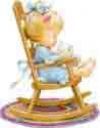|
ESL Forum:
Techniques and methods
in Language Teaching
Games, activities
and teaching ideas
Grammar and
Linguistics
Teaching material
Concerning
worksheets
Concerning
powerpoints
Concerning online
exercises
Make suggestions,
report errors
Ask for help
Message board
|
ESL forum >
Grammar and Linguistics > There is - there are - has got?
There is - there are - has got?
|

NanG

|
There is - there are - has got?
|
|
Hi Everyone!
I �m in doubt.
I know it is correct to say : There is a small kitchen in my house or There are three bedrooms in my house.
But , is this correct : My house has got three bedrooms???
Thanks in advance! =) |
23 Apr 2012
|
|
|
|

yanogator

|
|
Yep, they �re all good.
Bruce |
23 Apr 2012
|
|
|
|
|

Olindalima ( F )

|
|
Hi
A few years ago I had a kind of argument with Mark, from Mes-english, cause my students wrote something like .... " have got ... " and he said that it was quite funny. I didn �t understand, so I asked and, after a few messages, I got what he wanted to say and I agreed . "Have got ", for some American people ( ? / all / not sure ) , means some thing you got, you own, not something that, for free, in a natural way you have. He found it funny that my kids wrote things like these " I have got green eyes " and he said that, the kids hadn �t got them , they were born with them, they didn �t manage to get/buy/ achieve them. So, ..............they had green, simply
I wouldn �t say your house has got three bedrooms, cause your house has had no hard work to get them. Your house has 3 rooms, cause it has, but your house didn �t get them. I know this is confusing, but I got what explained to me and, since then, no matter if it is BE or AE, I always behave the same way. You have what you didn �t get from anyone else - you have straight hair, may be you have Palace, but you didn �t work for it, you have a beautiful landscape when you open your window, you have a good day, you have a splendid weather ..... . What you get from yourself, with your work, interference, then you can use have got.
Let me tell you that I am a native speaker, but.. from Portugal. Sorry, if I bothred you with this, but this is a very fascinating topic, and I find myself, quite often trying to discover, under my rules , what can I write her? GOT or HAS GOT.
Have a nice day , my two pence worth, : -))))
Linda |
23 Apr 2012
|
|
|

Anna P

|
|
Interesting discussion. An old Sesame Street song uses "I �ve got" for body parts.
|
23 Apr 2012
|
|
|

Apodo

|
|
@Linda,
That �s an interesting and logical way of deciding what to use - got = obtained.
I believe the usage is regional. I use �got � frequently: body parts, bedrooms, views.
Sometimes it means �obtained � and sometimes �possession of �.
American English � I have �. British English �I �ve got � He�s got, We�ve got etc. -almost always using the
contraction �s, �ve
Use whatever you �re comfortable with.
And that �s my tuppenceworth. (BE)
Marion |
24 Apr 2012
|
|
|

foose1

|
|
I was taught in college, by a very good English teach, if you do not need "got" in the sentence, take it out. Of course, that doesn �t mean you have got to take it out of the sentence. LOL John |
24 Apr 2012
|
|
|

dafodil

|
|
What for has got, with got or without it, I usually explain it to my students only if they need to make a question or a negative statement, that is, Does your house have three bedrooms? or Has your house got three bedrooms. My house hasn �t got three bedrooms. My house doesn �t have three bedrooms. So it depends on them to choose either one form or another; however, they should pay attention to the question or interrogative form as well as the negative one. |
24 Apr 2012
|
|
|

yanogator

|
|
@Linda, For the most part, in the US people don �t say "have got". If we mean "have obtained", we say "have gotten". I haven �t gotten my schedule for next term yet. My understanding agrees with Marion, that "have got" is BE and "have" is AE. Bruce |
24 Apr 2012
|
|
|

plemos

|
|
Hi Bruce and everybody,
As far as I �ve learned, "gotten" is AmE - to get, got, gotten
In BrE it is "to get, got, got"
I had this doubt once and came to this conclusion. I hope it �s correct!!!
As for the "Have Got" stucture, I wondered for some time why use it. When I strated learning English, I was taught the verb "to have", not the verb "to have got". Of course the first it is a bit more difficult because you have to teach, immediately, the auxiliar "to do" - with "have got" you just have to make the inversion in order to get your interrogatives or add "not" to have your negatives.
As far as I see it, "have got" is not a verb, but the Present Perfect of the verb "get", meaning "obtain"
Please correct me if I �m wrong.
Thanks a lot
Paula |
24 Apr 2012
|
|
|

ldthemagicman

|
|
"Hello, student. Will you get the book from the shelf for me, please?"
"Yes, teacher. Here you are. I have got the book for you".
"Student, you got the book very quickly. Thank you".
For the verb, "To get", I teach a similar structure to that shown above. For me, the verb, "To get", means "To obtain", "To fetch", "To bring", etc.
Here in the UK, I make my students aware of the following stuctures, (because they will meet them in life). However, I have NEVER TAUGHT sentences similar to those shown below.
"I have got blue eyes".
"He has got three sisters".
"She has got flu".
(The first sentence once prompted the question from a pedantic individual: "Oh? Where did you get your blue eyes?")
In my opinion, my teaching time with the students is too precious to waste on a Lesson devoted to teaching a superfluous structure, such as, "I have got", "You have got", etc.
This phrase is, in my opinion, better expressed by the simple, direct phrase: "I have", "You have", etc.
"I have blue eyes".
"He has three sisters".
"She has flu".
No doubt, several Members will disagree with me.
Les
|
24 Apr 2012
|
|
1
2
Next >
|